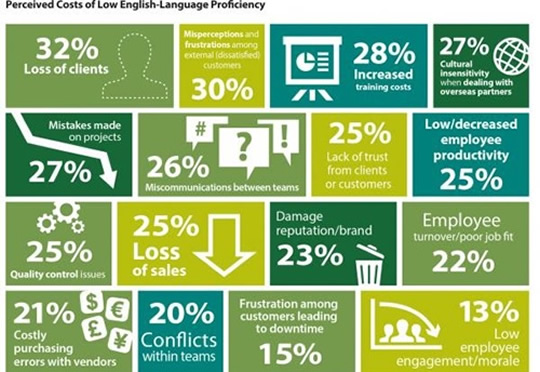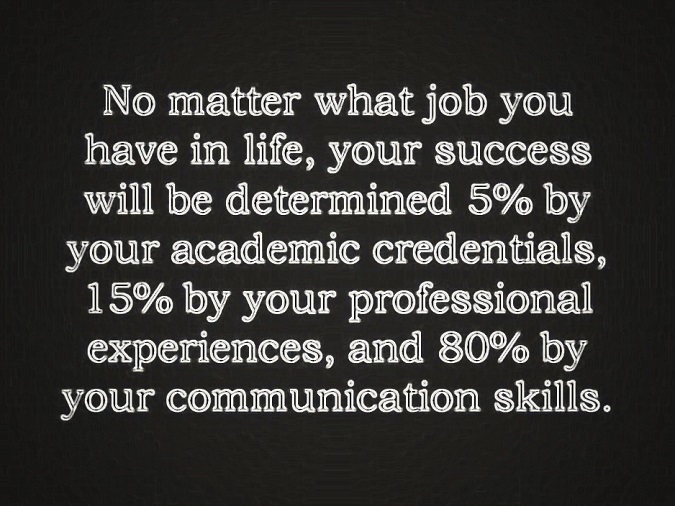Positive Health Online
Your Country

The Importance of Effective Communication Skills in a Complementary Therapy Practice
listed in clinical practice, originally published in issue 276 - February 2022
This article not only looks at the importance of therapeutic communication with our clients but also about how we use communication in the wider context when communicating with other healthcare professionals and in our social media and websites.
The NLP principle says that the meaning of any communication is the response that you get. So, if you get a different response to that which you were expecting, this means that the person you are speaking to or communicating with heard or read it differently from what you said and intended. Think about it - how often has that happened to you in your relationships?! In any communication, you need to be really specific so that there can be no misinterpretation of your meaning. As a healthcare professional, what you say and write also needs to be professional. That means that you spelling, grammar and punctuation need to be accurate. If you are not confident in this, you can get someone to proof read for you or you can use online resources. There is no excuse for bad grammar and inaccurate spelling!

Complimentary or Complementary
One of my greatest hates is the misspelling of the word “complementary” when referring to our profession. I see it all the time on websites and in emails where people tell me that they are a complimentary therapist or work as a complimentary therapy clinic. The professional association I run with my colleagues is called Complementary Health Professionals and yet still people email us with the incorrect spelling! Let’s put this to rest here and now and here is the reason why:
- Complimentary – an adjective meaning to express a compliment, praise or flattery. It can also mean something supplied free of charge such as a complimentary breakfast with your overnight stay in a hotel;
- Complementary – an adjective meaning to combine in such a way as to enhance or emphasise the qualities of each other or another.
When you look at these definitions, it is quite clear that as a therapist you are not buttering anyone up nor giving your services away for free but you are working alongside and supporting other forms of healthcare.
Another common mistake is over the word “practice”. Therapists get confused over whether they should use “practice” or “practise”. The confusion comes from the fact that in the USA, the spelling is always practice when used in any context as it is used both as a verb and a noun. In British English, when used as a verb it is to practise and when used as a noun, the spelling is practice. Examples are:
- My sister practises complementary therapies – this is the verb form.
- My sister has a complementary therapy practice – this is used as a noun.
Other words that I see spelled incorrectly on therapist’s sites and in social media are quite common one such as thier or there instead of their, were instead of where and your instead of you’re. Beleive is another as is concieve.
Helpful tips I can give to help are to look at the three words separately and think about what you are writing and reread it at least twice before hitting send or post. Examples:
- The clean towels for your clients can be found over there. We provide these for their safety and comfort – always remember that both words start as “the” and this helps;
- Where can I find the hand sanitiser? There were two bottles here yesterday but they are both empty. Sometimes we see where spelled as wear or ware;
- Your treatment has been booked for 11.30am on Tuesday and you’re most welcome – the difference is that you’re is an abbreviation of you are. Ask yourself when writing; am I meaning you are in this statement and if not, use your.
The final point is something that was drummed into me at school and that is “I before e except after c”. Therefore, the correct spellings are believe and conceive.

Perceived Costs of Low English-Language Proficiency
Making mistakes when writing to a GP or midwife does make you appear uneducated and unprofessional. If you want to be respected, take the time to proof read what you are writing. This is equally important on your website or Facebook page. This is non-verbal communication and it is probably the first impression a new customer gets of you and your services. This could be the deciding factor as to whether or not to engage your services. Go back and reread your website from the point of view of a client who knows nothing about complementary therapies and see if you are coming across well. Also, check your spellings! This issue with proficiency in English is not just limited to our profession. Take a look at these statistics:
Texts, Emojis
https://pixabay.com/vectors/talk-conversation-dialogue-to-speak-2076968/
Your first communication may be via a text or an email and in fact these days, clients seem to prefer a non-personal form of communication in the first instance. Think carefully about how you respond. Start by thanking the person for contacting you – after all you are in business and you want to attract new clients. Answer their questions and give options for appointment times. If it is an email, you can attach a map to find you and your leaflet, explaining more about what you offer. Make them feel valuable to you without losing professionalism. Remember, that a friendly tone goes a long way but you have to be friendly without losing professionalism. There always needs to be that professional barrier in place.
Another first communication could be by checking out your social media: Facebook or Instagram. You need to be very careful as a self-employed business person what you are putting out. It is important that this also remains professional unless you have it set for private use only. For example, by expressing a political or religious view you could be alienating over half of your prospective clients. If you put up or share posts that are all about unicorns and rainbows, well, you get my meaning! Whatever way you communicate, prospective clients will make a judgement about you and this could either prevent them from contacting you in the first place or from rebooking. Your own personal beliefs have nothing to do with your business and how you will offer a first-rate therapy service to every client you have the privilege to work with. Once you meet them, keep the same professional distance and do not engage in debates that are political, religious or contentious. These have no place in a therapy room. Leave those conversations to your family and friends in private.
We all know that first impressions count too and although we are told not to be judgmental, we all are. I think it is human nature and before you disagree with me think about the last time you watched TV and judged someone’s hairstyle, lipstick, attire, accent etc. Channel 4 has made a popular series out of it – Gogglebox and reality TV is very popular now. This will require you to look professional and to be what is expected by your client. You do not have to wear a uniform, but ensure that you are clean, ironed, covered up and have fresh breath. Your hair, if long, should be tied up and again be clean and neat. Bodywork therapist may need to have bare arms but generally choose something smart and presentable in order to set the tone and create a professional first impression. This will put the client at ease as their expectations will have been met from the start. The same goes for the treatment room, which needs to be clean, tidy and uncluttered. It needs to be warm and inviting as well as functional. This is all part of non-verbal communication. The next part of building the client therapist is all about getting into rapport and if you are interested in doing an online course to improve your communication skills, we have one available at Natural Therapeutics, accredited by Complementary Health Professionals - https://www.naturaltherapeutics.co.uk/therapeutic-communication-for-thera

Success determined by credentials, experience and communication
Aftercare advice is also very important when using effective communication skills. We need to be very specific about what we want the client to do in order to empower them to take responsibility for themselves. Clear communication and demonstration are very important. If you have an aftercare leaflet, take a look at it again and ask yourself, is it specific? Would I understand what to do as a client? You may want to revisit your leaflet and adjust it. Sometimes, I feel it is best to leave a section where I can write on some specific instructions or you can tell the client that you will email them details the following day, which can give you the time to ensure it is accurate and easy to understand.
I hope this short article has gone some way to highlight how you can improve your practice and how you communicate both verbally and non-verbally with clients and potential clients. Really, it does not matter how brilliant your massage or reflexology treatment is or how skilled you are at blending essential oils or clearing energy, because if you are not good at clear, positive communication that is both open and friendly yet professional and business like, that is also allowing your client the feeling that they can open up to you to best inform their treatment, you will never be busy. Communication is key is business but in healthcare it is also essential for achieving your practice outcomes.
Further Information
Carole Preen is a director at Complementary Health Professionals and owner at Natural Therapeutics, which offers accredited courses for complementary therapists to update and improve their skills, most of which are online studies with personal tutor individualized developmental feedback on coursework. For more information, see www.naturaltherapeutics.co.uk
Comments:
-
No Article Comments available
